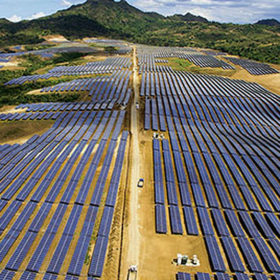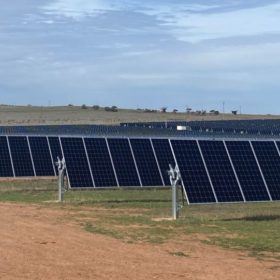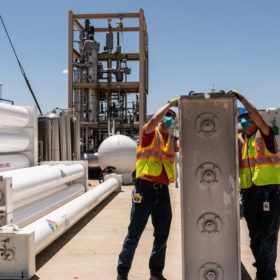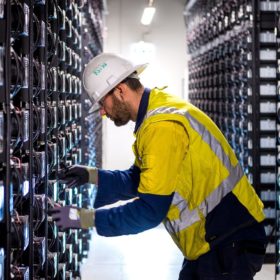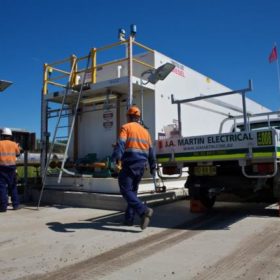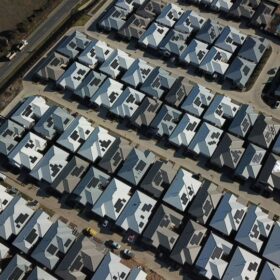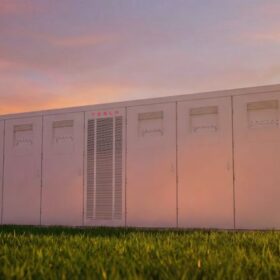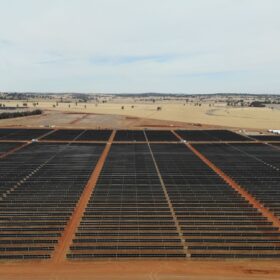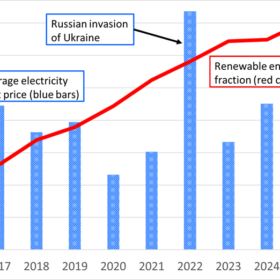Philippines allocates 1.57 GW of solar in 2 GW renewables auction
The main winner of the first renewables auction in the Philippines was developer Solar Philippines Nueva Ecija Corp. (SPNEC), which secured five solar projects, or 1.35 GW of capacity.
SA Water’s $300 million solar initiative pumps out another PV system
South Australia utility SA Water has energised another solar PV plant as part of a $300 million solar investment designed to save on both costs and carbon. switching on a 10.3 MW solar system at its Rocky Gully pump station near Murray Bridge in the state’s south-east.
Rio Tinto joins industrial heavyweights in green hydrogen fund raise
Rio Tinto has joined a group of industrial heavyweights including Equinor, Amazon and Mitsubishi Heavy Industries as investors in United States-based renewable hydrogen start-up Electric Hydrogen which plans to build green hydrogen production facilities at scale for industrial and infrastructure applications.
CS Energy unveils plans for Queensland’s biggest battery
Queensland government-owned generator CS Energy has announced plans to build the largest grid-scale battery in the state at Greenbank in Brisbane’s outer southern suburbs. The 200 MW/400 MWh project will be delivered in partnership with Queensland network operator Powerlink.
VivoPower Australian subsidiary scores largest solar contract to date
United States-based solar power developer VivoPower International has secured its largest solar contract to date with Australian subsidiary J.A. Martin Electrical appointed to complete the electrical works for the 204 MWdc Edenvale Solar Farm being developed on Queensland’s Western Downs.
Delorean goes back to the future with new EV
Electric vehicle buyers could soon have another brand to add to their list of potential cars with the DeLorean Motor Company revealing details of its all-electric Alpha 5, a modern reimagining of the 1980s cult classic sports car made famous by the Back to the Future film trilogy.
2021 snapshot: Australia’s distributed PV and storage uptake
Australia’s small-scale solar and battery energy storage installation rate has remained robust in the face of a number of challenges. By virtue of this resilience, it is adding jobs and contributing the country’s decarbonisation, reports Nikhil Jayaraj, the Managing Director of Regen Power.
Indian manufacturer unveils battery with solar storage
India’s Natural Battery Technologies has developed lithium-based battery inverters that can be charged with solar power. The batteries are designed for residential and commercial use, with storage capacities typically ranging from 1.5 kWh to 20 kWh.
Longi unwraps reasons behind green hydrogen shift
In recent years, Longi has turned its attention to green hydrogen. Li Zhenguo, company founder and CEO, speaks with Vincent Shaw in Shanghai about the strategic shift and how coupling this technology with solar PV will be key to achieving carbon neutrality.
Evergen eyes international market after sealing $15 million FRV-X deal
Australian solar and battery optimization technology provider Evergen will seek to accelerate its expansion in both the domestic and international markets after closing a $15 million fundraising round led by FRV-X, a division of Saudi-owned energy developer Fotowatio Renewable Ventures.
